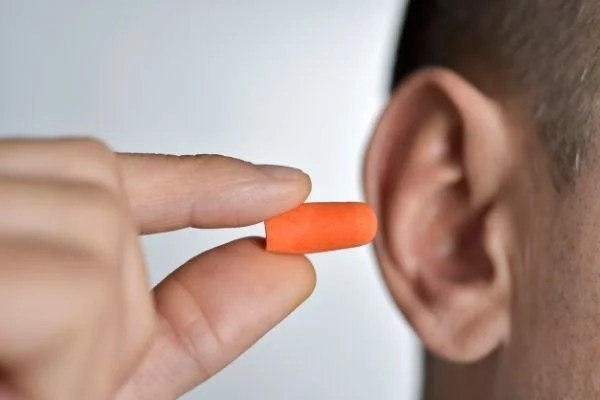Let's face it: earplugs are a blessing for light sleepers, pros at keeping noises like car horns and their partner's terrifying snores at bay. But can they be worn every single night for the rest of your life? Let's find out.
Benefits
Sleeping with earplugs in notably improves the quality of your sleep. Loud sounds can quickly wake you out of deep sleep. This has enduring effects, even if you wake up only for a few seconds. It takes time for your body to return to that state of deep sleep that your body needs after a full day of work.
According to a 2006 report, low-quality sleep over a long period may increase your risk of:
High blood pressure
Stroke
Diabetes
Heart attack
Obesity
Depression
Another report from 2012 noted that poor sleep is linked to inflammation and limited immune function.
In some cases, earplugs can increase rapid eye movement (REM) sleep. REM sleep is the ,most profound form of sleep and aids several crucial processes like memory consolidation.
Earplugs may also increase melatonin levels. Melatonin is a hormone that controls the sleep-wake cycle and enhances sleep.
Last but not least, compared with some other methods of producing sleep, earplugs have lesser side effects. For example, both over-the-counter and prescription sleeping pills can cause dizziness and daytime drowsiness.
Side Effects
Excessive use of anything can prove harmful. Similarly, if earplugs are worn regularly for long periods, they can push earwax back into your ear, causing build-up. This can result in temporary hearing loss and tinnitus.
Earplugs can also cause ear infections. While they can happen due to a build-up of earwax, bacteria growing on earplugs can also cause them. Ear infections are often painful and can have complications such as hearing loss if left untreated.
What to Do Next
If you're worried about going deaf or contracting terrible ear infections, it's time to make some changes to your environment.
Try sound-proofing your walls, windows, floors, and doors to avoid noise. You can do this by using acoustic foam on the walls and ceiling, thick curtains over the windows, furnishing the floor with rugs and carpets, and installing a soundproof blanket or a fiberglass panel to add mass to the door.
Use alternatives to earplugs. External ear muffs like those available at Hibermate should work wonders for your sleep cycle. They're made with sound-reducing, incredibly soft ear cushions, so you can sleep more comfortably.
You could also use Hibermate earbuds that sit tight in your ear but not too deep like earplugs. They are very comfortable to sleep with. They are also silent and exceptional at blocking out the noise coming from outside and inside your bedroom.
If you are busy, you might not have time to soundproof. In this case, use a white noise machine to muffle out sounds you don’t want to hear. You can play anything on these devices, from the sounds of waves gently crashing against the shore to the rustling of leaves in the autumn gale.
Play soothing music on your phone, laptop, or personal computer. Or, if you’re in the mood for something more educational, try listening to a podcast. This should help you fall asleep and let you retain ,helpful information.
Here’s another suggestion: Listen to a boring lecture. It's been proven to put listeners to sleep in no time!
What’s the Best Type of Earplug for Sleeping?
Now, in case you don't want to part with your beloved earbuds, try these on for size:
Wax earplugs are easy to mold to the size of your ear. They’re a good choice for sleeping and swimming since they’re waterproof.
Foam earplugs are the most inexpensive option. They’re also soft, which makes them a good choice for sleeping. However, their spongy material makes them an excellent environment for bacteria, so you’ll need to replace them often.
Custom-made earplugs are also an option. You can talk to your doctor about them. It usually involves making a mold of your ears and creating a pair of reusable earplugs that match their shape. However, custom earplugs are expensive and need to be cleaned regularly. They’re also very good at completely blocking out noises, so use them carefully.
Takeaway
Earplugs are very affordable, easy to use, and effectively block out noise. However, they should be cleaned regularly and not used constantly to avoid ear infections and hearing loss.














